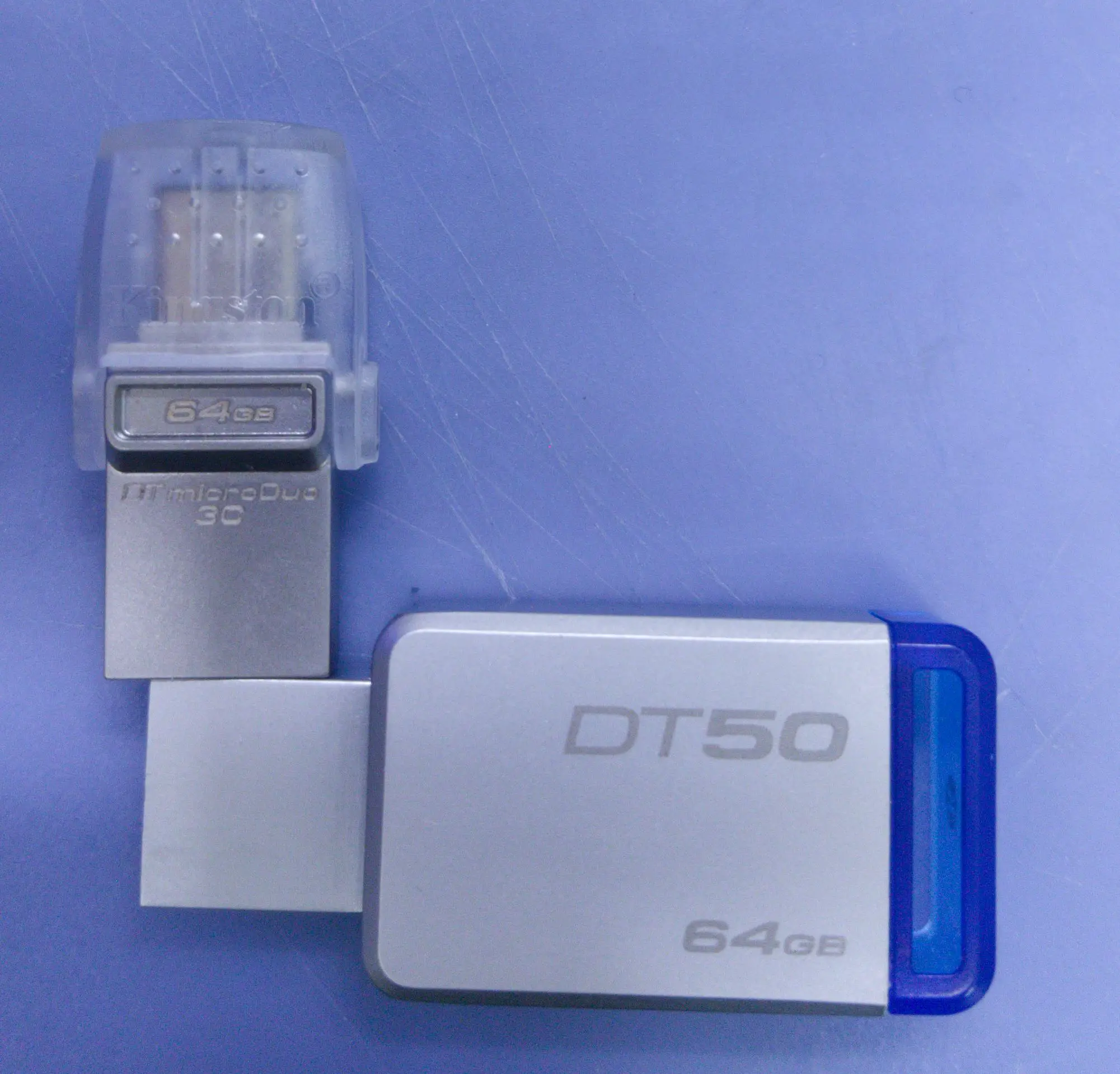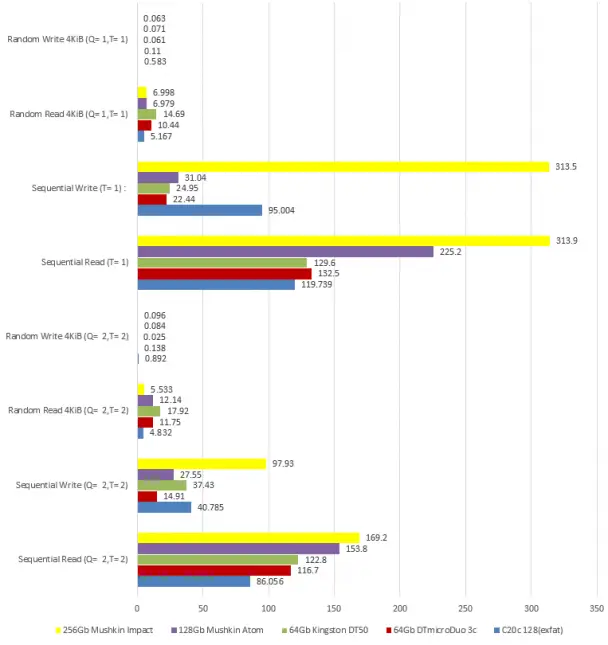Kingston DT50 and DTmicroDuo 3C Review
 Kingston recently sent over their DT50 and DTmicroDuo 3c for review. Although normally I’d split these into separate articles they perform so similarly I’m going to be presenting both in this article.
Kingston recently sent over their DT50 and DTmicroDuo 3c for review. Although normally I’d split these into separate articles they perform so similarly I’m going to be presenting both in this article.
Design and Packaging
Each drive shipped in a fairly standard Both drives are metallic chassis appearing to be composed of aluminum primarily. The DT50 has a colored accent on the end(my sample is blue) and Kingston even offers customization of the drive. The 3c is the more interesting looking of the two with it’s USB-C port for compatibility with newer systems. It does have a small plastic cap that protects the type-c connector when not in use. Both drives are relatively light and have good in hand feel. And the use of metal as the primary material for both dives with a smooth finish gives them a premium feel. The DT50 seems a bit oversized and might cause issues with tightly clustered USB ports. Both drives ship with a 5 year warranty, their performance specifications vary based on size and are summarized below.
| Capacity in GB | DT50 Read/Write in MB/s | microDuo C3 Read/Write in MB/s |
|---|---|---|
| 8 | 30/5 | - |
| 16 | 30/5 | 100/10 |
| 32 | 110/15 | 100/15 |
| 64 | 110/15 | 100/15 |
| 128 | 110/15 | 100/15 |
Taking a peek inside
Although I can’t physically dismantle a flash drive I can politely ask it what’s inside. To that end we’ll be using ChipGenius version 4 to take a look at what nand/controller they’re using. To my surprise both drives appear to be using Toshiba nand, TLC in this case as well as the same Phison PS2251 The use of TLC memory shouldn’t present any real downsides for these drives. But it does explain the low write speeds in the specification table.
Crystal Disk Mark
Looking at Crystal Disk mark the drives perform very similarly in all tests with the DT50 coming in slightly faster than it’s smaller cousin in most of the tests. This variance is likely due to two factors, the DT50’s increased size should allow it to dissipate more heat. As well it’s controller appears to have newer firmware. Neither drive manages to compete sequentially with our record setting Mushkin IMPACT. However the DT50 does post the highest random read numbers we’ve seen on a USB3 flash drive to date. Neither drive’s sequential write performance is particularly surprising considering they’re using TLC memory.
ATTO
Starting with the IMPACT we started using ATTO to look at flash drives performance. The charts generated by these two drives are unsurprising outside of the small jump with the DT50 at the 128k transfer size. Write performance for both drives appears consistent past the 1Mb transfer size. The net result of this is that both should perform consistently even with large transfers.
Format
| Fat32 | ExFat | NTFS | EXT3 | EXT4 | HFS+ | |
|---|---|---|---|---|---|---|
| Maximum File Size | 4Gb | 16 EiB | 16 EiB | 16 GiB to 2 TiB | 16 GiB to 16 TiB | 8EiB |
| Maximum Volume Size | 512 MiB to 8 TiB | 64 ZiB | 16 EiB | 2 TiB to 32 TiB | 1 EiB | 8 EiB |
| Name length limit | 255 characters | 255 characters | 255 chars | 255 bytes | 255 bytes | 255 UTF-16 characters |
| Windows | Yes | 7 and higher natively, XP and vista via patch | Yes | Partial | Partial | Partial |
| Linux | Yes | FUSE based due to liscensing | Yes with ntfs-3g | Yes | Yes | Partial |
| OSx | Yes | 10.6.6 and above | Yes with ntfs-3g | Partial | Partial | Yes |
| Android | Yes | Yes(5.0 and higher tested on htc m8/10) | Yes(5.0 and higher tested on htc m8/10) | Yes | Yes | Unknown |
Both drives ship pre formatted as FAT32, this can cause problems with larger files such as videos. Fortunately reformatting a drive is trivial in windows and most other modern operating systems. It does not make sense for any drive larger than 32Gb to ship as Fat32, and is a very odd choice for larger drives. I would encourage Kingston to ship the larger variants of the both drives as ExFat although this is a minor inconvenience at worst.
Closing thoughts
Both of these drives have an excellent premium appearance and post good enough performance for an average USB 3.0 device. Neither is setting any records for write speeds and that’s ok, the DT50 comes in at a respectable 22.95 on amazon and the microDuo 3C only comes in a few dollars more at 28.87 making these some of the most affordable flash drives we’ve reviewed. For basic storage the DT50 is hard to beat and is available here on amazon, for something slightly more flexible the microDuo 3C is available here.



